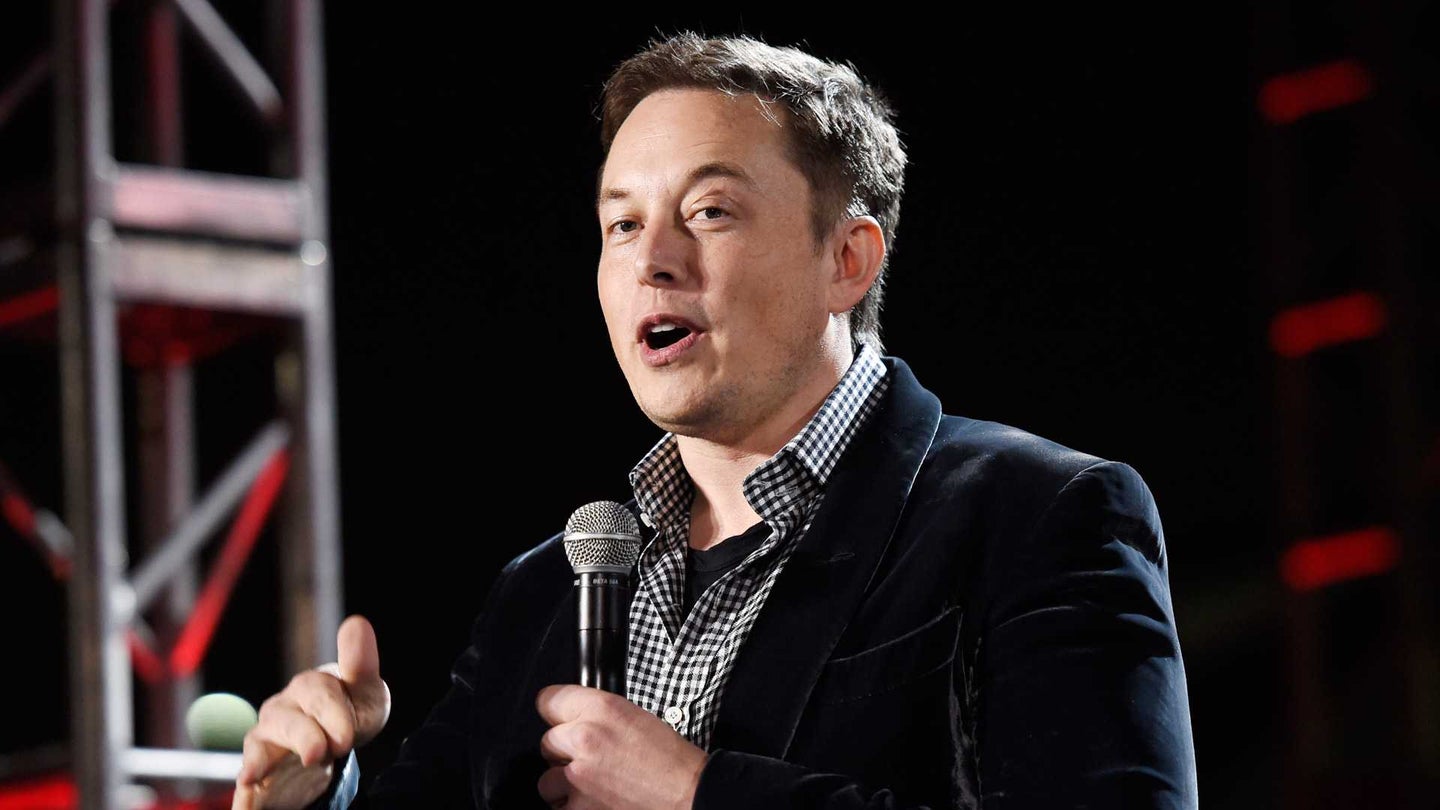Elon Musk: Tesla ‘Probably Would Not’ Accept Saudi Arabian Investments
Tesla’s CEO is less likely to take cash from the Saudis after the assassination of Jamal Khashoggi…sort of.

After the brutal torture and murder of journalist Jamal Khashoggi, Tesla CEO Elon Musk says he's less interested in receiving investment from the Kingdom of Saudi Arabia.
During a Halloween night interview with Recode, Musk shared his thoughts about the recent happenings in Saudi Arabia and other popular issues like Mars and the much-discussed Tesla pickup.
"Yeah, I mean, that sounds pretty bad," Musk said of Khashoggi's killing to Recode. "So... that is not good. That is bad."
"I think we probably would not," he answered when asked about taking Saudi investment.
However, Musk elaborated on his noncommittal statement by hinting there could be Saudis from whom Tesla would still accept money.
"I think we should just consider that there is a whole country, and there's, you know... There are a lot of good people in Saudi Arabia and Saudis who are outside of Saudi Arabia. So I think you cannot paint an entire country with one brush," Musk concluded.
Potential Saudi investment was at the root of Musk's recent spat with the Securities and Exchange Commission (SEC). Musk announced via Twitter a plan to buy Tesla stock back at $420 per share using cash from Saudi investors, which was later identified it was Saudi Arabia's Public Investment Fund. Tesla and the PIF never finalized the deal, however, a nine-percent leap in Tesla stock price prompted the SEC to look into Musk's dealings, eventually resulting in a $40-million fine and loss of his role as chairman of the board.
To add insult to injury, the PIF instead invested the potentially Tesla-bound cash in rival electric vehicle startup Lucid Motors. Tesla has an imminent need for investment or profitability to secure its future within the industry, and though the automaker achieved a $312-million profit in Q3 (its first profitable quarter in history), it did so largely via the sale of regulatory ZEV credits which although legal, is far from being a long-term or sustainable business model.
